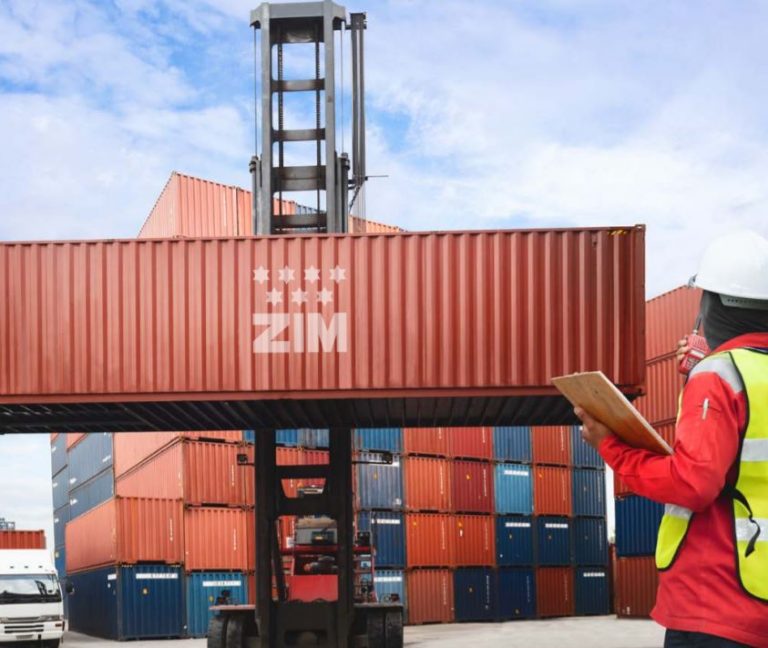Israel’s Zim said on Wednesday it would take on charter five additional 7,000 TEU LNG-powered container vessels from Seaspan.
Zim said it has decided to exercise its option for the five new vessels as part of a transaction the duo announced in July. According to the firm, the value of this option reaches more than $750 million.
This order puts the total to fifteen 7,000 TEU LNG-powered container vessels Zim had chartered from Seaspan. The vessels will join Zim’s fleet from the fourth quarter of 2023 and into 2024.
Also, these new deals follow a contract signed by the duo earlier this year for ten 15,000 TEU LNG-powered vessels. Seaspan, a unit of Atlas Corp, placed the order for these dual-fuel ships at South Korea’s Samsung Heavy Industries.
“With this option exercise, we are securing Zim’s core fleet needed to serve our operations and meet our customers’ growing needs, while continuing to maintain our operational agility,” chief executive Eli Glickman, said.
“Furthermore, this transaction demonstrates our deep commitment to the environment and to reducing our carbon footprint. We continue to invest the resources necessary to be an industry leader and to prepare ourselves for the cleaner future of our industry,” he said.
Seaspan says charters worth about $900 million
Seaspan said in a separate statement it would enter into agreements with a major shipyard to build the LNG-powered vessels.
The firm expects the delivery of the ships during the fourth quarter of 2024.
Moreover, Seaspan said the purchase price would reach about $530 million while the 12-year charters would total about $900 million of gross contracted cash flow.
It plans to finance the vessels from existing liquidity, cash flow from operations but also additional borrowings.
“The exercise of this option, with valuable vessel deliveries at competitive pricing, highlights the continued quality growth for both companies,” Bing Chen, CEO of Seaspan, said.
“With strong customer interest in this vessel size, we consider this category to be the natural successor to the aging global fleet of conventional vessels between 4,000 and 9,000 TEU,” he said.

